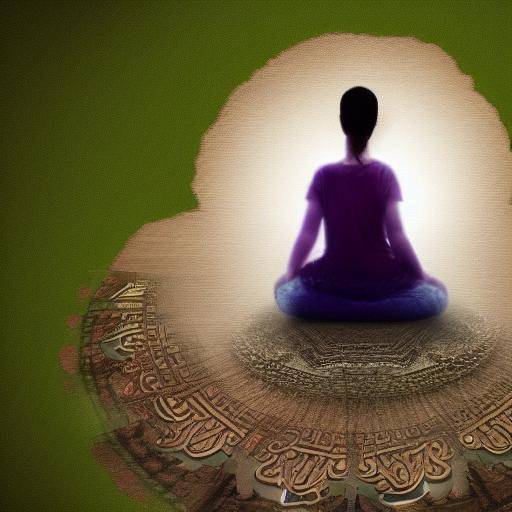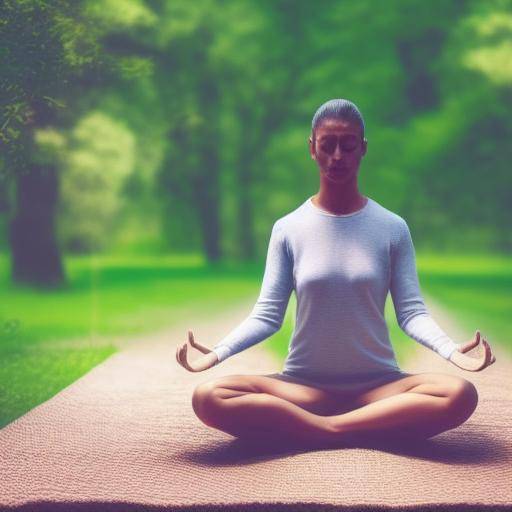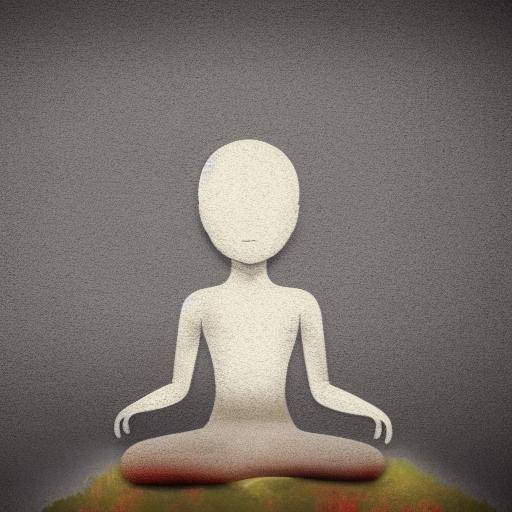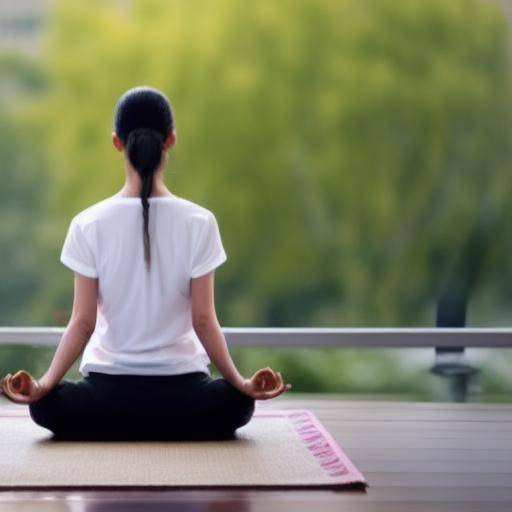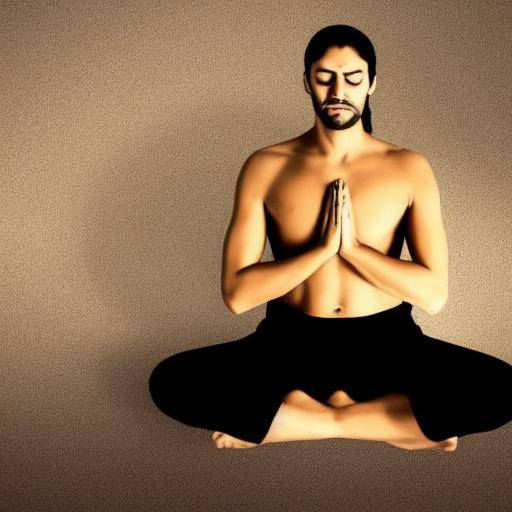
Peace and emotional well-being are fundamental to a balanced life. Developing effective relaxation habits can make the difference in the quality of our nights, positively influence our emotional well-being and prepare for a restorative rest. In this article, we will explore the importance of relaxation habits, how to integrate them into an effective night routine and their impact on emotional well-being.
Introduction
Often, the accelerated pace of modern life leads us to neglect our relaxation and emotional well-being, affecting our nights of rest. However, by incorporating relaxation habits in our night routine, we can promote a repairing sleep and revitalized awakening. In addition, these habits not only impact our quality of sleep, but also our daily emotional well-being.
History and Background
Relaxation habits have a long history that goes back to ancient civilizations. From meditation practices in Buddhism and yoga in India to the traditions of relaxing baths in ancient cultures, human beings have sought ways to find calm and restore emotional balance.
In the twentieth century, psychology began to study and recognize the importance of relaxation for mental health. Various therapeutic currents such as cognitive behavioral psychology and progressive relaxation therapy contributed to the understanding of relaxation as an essential element for emotional well-being.
Analysis in Deep
The benefits of relaxation habits for emotional well-being are abundant. Scientific studies have shown that relaxation can reduce levels of stress, anxiety and depression, thus promoting a state of calm and emotional balance. In addition, relaxation can enhance the quality of our dream, improving our capacity for concentration and decision-making during the day.
Despite these benefits, the incorporation of relaxation habits in the night routine can present challenges, especially in a society driven by technology and constant demands. In the digital age, constant stimulation of electronic devices can make disconnection and relaxation difficult before sleeping.
Comprehensive review
To integrate effective relaxation habits into our night routine, it is essential to explore different approaches and practices. Meditation, deep breathing, yoga, relaxing bath and quiet reading are just some of the options that can significantly contribute to our emotional well-being and sleep quality.
In an increasingly well-being-conscious world, dream experts and psychology have developed specific recommendations for an effective night routine. Establishing a regular schedule to lie down and get up, creating an enabling environment for rest and limiting exposure to blue screens are best practices to improve sleep quality and encourage relaxation before sleeping.
Comparative analysis
Relaxation habits, night routine and emotional well-being are closely interrelated. By developing an effective night routine that favors relaxation, we can significantly impact our daily emotional well-being. Establishing a balance between these elements is essential to promote a balanced, full and healthy life.
Practical Tips and Accessible Tips
Some practical tips when developing relaxation habits for an effective night routine include:
- Set a relaxing routine before sleeping, such as meditating or performing soft stretching.
- Creating an environment conducive to sleep, like a dark and fresh room.
- Avoid e-stimulation at least one hour before bedtime, prioritizing quiet reading.
- Practice deep breathing to induce relaxation.
- Limit caffeine and alcohol consumption in pre-sleep hours.
Perceptions of Industry and Expert Reviews
Experts in the field of sleep and psychology have expressed the importance of relaxation habits for emotional well-being. According to Dr. Ana Galván, a psychologist specializing in sleep disorders, "Integrating relaxation practices in the night routine can significantly improve sleep quality and promote a state of emotional calm to face the next day."
Current trends in the area of emotional well-being highlight the importance of finding a balance between the digital world and disconnection to favor relaxation before sleeping. As well as full attention and self-care have gained relevance in modern society, the consideration of peace and relaxation as pillars of well-being is consolidated as an integral approach.
Case Studies and Real Life Applications
To understand the practical application of relaxation habits in the night routine, consider the case of Mary, a stressed executive who used to fight to reconcile the dream. Introducing relaxation practices such as meditation and a quiet reading before sleeping, Mary experienced a remarkable improvement in the quality of her dream and her overall emotional well-being.
In addition, in working environments, companies and Google have implemented programs that encourage the relaxation and rest of their employees, with meditation rooms and well-being programs designed to promote healthy relaxation habits both in the working environment and in the personal lives of their collaborators.
Future Trends and Predictions
As awareness of the importance of relaxation for emotional well-being continues to increase, business and institutions are expected to adopt practices that will promote the relaxation and rest of their employees. In addition, with the advancement of technology, applications and devices designed to promote relaxation and sleep are likely to emerge effectively.
Conclusion
Relaxation habits are cornerstones for an effective night routine and balanced emotional well-being. By integrating relaxation practices into our night routine, we can significantly enhance our quality of sleep and our ability to face the day with calmness and emotional balance.
FAQs
What are the benefits of incorporating relaxation habits in my night routine?
The incorporation of relaxation habits in the night routine can reduce stress, anxiety and difficulty to reconcile sleep, thus promoting a repairing rest and a revitalized awakening.
How can I start incorporating relaxation habits in my night routine?
You can start by setting a relaxing routine before sleeping, such as meditating, smooth stretching, or enjoying a quiet reading. Creating an enabling environment for sleep and limiting exposure to blue screens are also effective practices.
What is the impact of relaxation habits on daily emotional well-being?
Relaxation habits can significantly impact daily emotional well-being by reducing stress levels, improving sleep quality and promoting a state of calm and emotional balance.
Why is the balance between night routine, relaxation habits and emotional well-being important?
The balance between night routine, relaxation habits and emotional well-being is essential to promote a balanced, full and healthy life. By integrating these elements, we can benefit from a repairing dream and a balanced emotional state.
What is the role of deep breathing in relaxation before sleeping?
Deep breathing can induce a state of relaxation by reducing the body's response to stress and promoting calm. Incorporating deep breathing techniques in the night routine can favor relaxation and improve sleep quality.
What are future trends related to relaxation habits and emotional well-being?
Businesses and institutions are expected to adopt practices that encourage the relaxation and rest of their collaborators, in addition to the technological advance that may lead to new applications and devices designed to promote relaxation and sleep effectively.
In short, relaxation habits significantly impact our night routine and our overall emotional well-being. Incorporating effective relaxation practices can improve the quality of our dream and promote a more balanced and full life. Using strategies such as meditation, deep breathing and creating an enabling environment for rest can make the difference in our daily emotional well-being.


